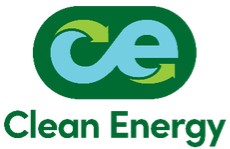Non-GAAP Income (Loss) Per Share
Non-GAAP income (loss) per share, which the Company presents as a non-GAAP measure of its performance, is defined as net income (loss) attributable to Clean Energy Fuels Corp., plus Amazon warrant charges, plus stock-based compensation expense, plus accelerated depreciation expense relating to the removal of fueling station equipment located on certain Pilot premises, plus (minus) loss (income) from the SAFE&CEC S.r.l. equity method investment, and plus (minus) any loss (gain) from changes in the fair value of derivative instruments, the total of which is divided by the Company’s weighted-average common shares outstanding on a diluted basis. The Company’s management believes excluding non-cash expenses related to the Amazon warrant charges provides useful information to investors regarding the Company’s performance because the Amazon warrant charges are measured based upon a fair value determined using a variety of assumptions and estimates, and the Amazon warrant charges do not affect the Company’s operating cash flows related to the delivery and sale of vehicle fuel to its customer. The Company’s management believes excluding non-cash expenses related to stock-based compensation provides useful information to investors regarding the Company’s performance because of the varying available valuation methodologies, the volatility of the expense (which depends on market forces outside of management’s control), the subjectivity of the assumptions and the variety of award types that a company can use, which may obscure trends in a company’s core operating performance. The Company’s management believes excluding non-cash accelerated depreciation expense relating to the removal of fueling station equipment located on certain Pilot premises is helpful to investors because the expense is not part of or representative of the on-going operations of the Company and may reduce comparability or obscure trends in the Company’s operating performance. Similarly, the Company believes excluding the non-cash results from the SAFE&CEC S.r.l. equity method investment is useful to investors because these charges are not part of or representative of the core operations of the Company. In addition, the Company’s management believes excluding the non-cash loss (gain) from changes in the fair value of derivative instruments is useful to investors because the valuation of the derivative instruments is based on a number of subjective assumptions, the amount of the loss or gain is derived from market forces outside of management’s control, and the exclusion of these amounts enables investors to compare the Company’s performance with other companies that do not use, or use different forms of, derivative instruments.
Adjusted EBITDA
Adjusted EBITDA, which the Company presents as a non-GAAP measure of its performance, is defined as net income (loss) attributable to Clean Energy Fuels Corp., plus (minus) income tax expense (benefit), plus interest expense (including any losses from the extinguishment of debt), minus interest income, plus depreciation and amortization expense, plus Amazon warrant charges, plus stock-based compensation expense, plus (minus) loss (income) from the SAFE&CEC S.r.l. equity method investment, plus (minus) any loss (gain) from changes in the fair value of derivative instruments, plus depreciation and amortization expense from RNG equity method investments, plus interest expense from RNG equity method investments, and minus interest income from RNG equity method investments. The Company’s management believes Adjusted EBITDA provides useful information to investors regarding the Company’s performance for the same reasons discussed above with respect to non-GAAP income (loss) per share. In addition, management internally uses Adjusted EBITDA to determine elements of executive and employee compensation.
Safe Harbor Statement
This press release contains forward-looking statements within the meaning of Section 27A of the Securities Act of 1933, as amended, and Section 21E of the Securities Exchange Act of 1934, as amended, including statements about, among other things, our fiscal 2023 outlook, our volume growth, customer expansion, production sources, joint ventures, governmental regulations, and the benefits of our fuels.
Forward-looking statements are statements other than historical facts and relate to future events or circumstances or the Company’s future performance, and are based on the Company’s current assumptions, expectations and beliefs concerning future developments and their potential effect on the Company and its business. As a result, actual results, performance or achievements and the timing of events could differ materially from those anticipated in or implied by these forward-looking statements as a result of many factors including, among others: the direct and indirect impact of the COVID-19 pandemic; macroeconomic conditions and supply chain issues and the related impact on our operations, liquidity and financial condition; the willingness of fleets and other consumers to adopt natural gas as a vehicle fuel, and the rate and level of any such adoption; the Company’s ability to capture a substantial share of the market for alternative vehicle fuels and vehicle fuels generally and to compete successfully in these markets; the potential adoption of government policies or programs or increased publicity or popular sentiment in favor of other vehicle fuels; the market’s perception of the benefits of RNG and conventional natural gas relative to other alternative vehicle fuels; natural gas vehicle and engine cost, fuel usage, availability, quality, safety, convenience, design, performance and residual value, as well as operator perception with respect to these factors, in general and in the Company’s key customer markets, including heavy-duty trucking; the Company’s ability to further develop and manage its RNG business, including its ability to procure adequate supplies of RNG and generate revenues from sales of such RNG;
